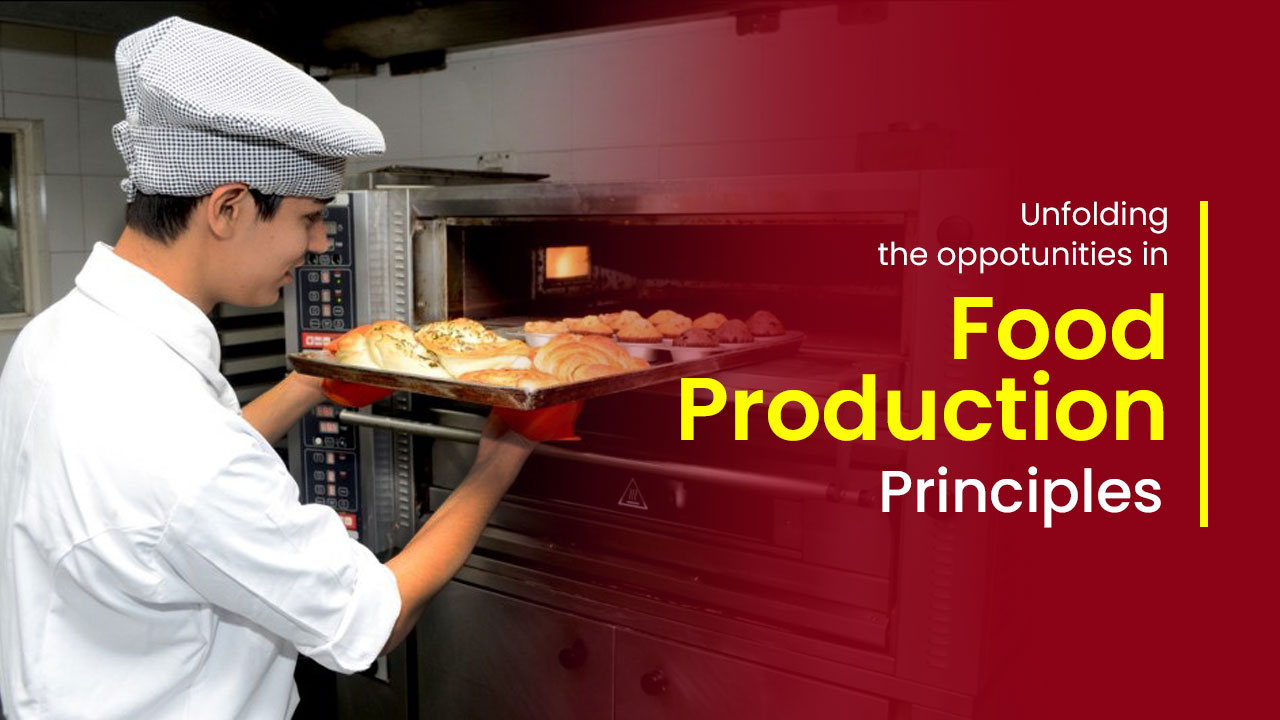
Food production is about the entire cycle of food processing. It begins with the procurement of freshly harvested raw materials and ends with the preparation of edible ensembles in our plates. There are many steps in this long journey, and each step must be treated with the utmost care, lest the quality of food is jeopardized and it becomes unfit for human consumption. Food production principles guide laymen in the severe need for constantly monitoring and safeguarding fresh produce. In modern times, food production is closely aided by technology, and trained food scientists employ technology at every step to ensure the safety of food products.
The main aspects of food production are conservation, nourishment, security, expulsion, and classification. With the rise of food production, industries often have to deal with massive amounts of fresh resources in a single day, which directly increases the need for trained personnel to be involved at every step of the way. This job is done by the food production principle professionals.
Restaurants and food chains heavily favor the safety and security of their food. In a post-pandemic world, the scope for food principle professionals has intensified. Food production is essentially included in culinary curriculums. Aspirants with an enthusiasm for food security and production can begin their lucrative career with a certificate in food production principles.
The Scope for Food Production Principles Professionals
There is so much to a restaurant job than the chef who prepares the food. The food production professionals play an instrumental role in the workings of culinary enterprises. As the hospitality sector expands, there is an increasing need for food professionals who can enforce quality standards on fresh and processed meals. 5-star hotels, diners, cafes, and other eateries are on the lookout for skilled professionals who can overlook the procurement and production of food.
Here are the top 10 food production job profiles
1. Itinerary Producer: An itinerary producer is a food production planner, responsible for the smooth functioning of the food line. The producer is also responsible for the procurement of machines and mechanisms that aid in food production. This is an expert position, and the itinerary producer works in sync with all production administrators.
2. Quality Supervisor and Systems Manager: A quality supervisor oversees the last leg of food production and is responsible for final touches. The quality supervisors uphold the quality standards for any and every meal that is made and enforce industrial prerequisites to the packaging of food.
3. Molecular Gastronomist: Molecular gastronomists examine the chemical and physical transformation that food undergoes during cooking. It is a highly coveted position, and most high-end restaurants make it a ‘must’ have one.
4. Craft Brewer: A craft brewer uses the principles of food production to source freshly brewed beverages for hospitality enterprises. Fresh, handcrafted brews are gaining popularity among local bars and joints, adding to the lucrative job profile of a craft brewer. Along with beer, the fresh procurement of wine and cider is an increasingly popular prospect at high-end restaurants.
5. Food Stylist: Food stylists oversee the presentation of food. Although it appears to be superficial, food stylists have the innate responsibility of enhancing the aesthetic appeal of the food to make it a commercial success. Presentable food has a lasting impression on the eyes of the beholder, which is why food styling is one of the most sought professions after the study of food production principles.
6. Mycologist: Mushroom scientists, also known as mycologists, are specialized in the field of mushrooms. Mushroom consumption is a lucrative industry. Due to the increasing demand for mushrooms in vegan circles, leading restaurants and food chains now employ trained mycologists to administer and produce mushroom dishes.
7. Food Scientist: Food scientists are leading researchers who analyze processed food and examine its fitness for consumption. A food scientist determines the level of sugar, fat, vitamins, and protein in the food. Additionally, they also guide the chefs on ways of preservation, packaging, and distribution of food. Being a perishable item, foods are subjected to wear and tear which ultimately degrades their quality. A food scientist also works with chefs and performs vigilance on the production unit to enforce high standards on food.
8. Dietician: A Dietician is responsible for providing expert counseling on the nutrient quotient of meals. Dieticians can work as personal doctors and advisors to individuals, as well as expert reviewers of mass-producing food enterprises like restaurants.
9. Food Production Manager: A food production manager handles the procedural element of food development. The main role of the job is the screening of food items and raw materials to ensure the smooth functioning of the kitchen.
10. Culinary Expert: Culinary experts oversee the entire menu of the restaurant and establish a synthesis between various food groups. They are responsible for maintaining the nourishment quotient of meals. From planning and cooking, all the way to the execution of dishes — a culinary expert sees it all. They also oversee the itinerary and supervise the order and procurement of fresh produce.
Food Production Principle: Eligibility & Course
A certificate course in food production principles opens the door for an array of career opportunities in the culinary industry. Leading hotel management and culinary institutes have specialized courses that can propel candidates to high-paying jobs in the industry. People interested in this transformative course can check out Lords Institute of Management, which offers the best food production principle courses in Surat.
In conclusion,
At the face of a well-run restaurant, all that’s visible is a chef — but there are so many other people involved in making a perfect plate of food. Food production professionals are equipped with the knowledge of industry standards and legal laws that must be followed by every enterprise in the food industry. A certificate course in food production principles is all you need to enter this exciting field and kick start your career in the food industry.



